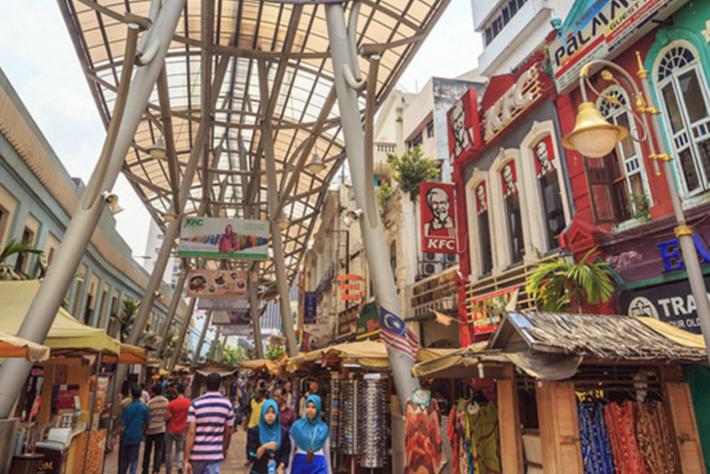Over the summer, I participated in a summer school programme through the University of Westminster, studying a two-week course with the University of Nottingham Malaysia. I took a course about culture, media, and politics in Southeast Asia. My professor was half Chinese-Malay and half Singaporean. He is somewhat critical of the structures in his home countries. Gaining his perspective on this region was very in-depth, and many would be too afraid to speak about it in a
classroom. Nevertheless, Southeast Asia is a region of the world I have always been incredibly attracted to, and being able to learn more about the ins and outs of their social and political structures was very interesting.
One of the most interesting things I learned while there is that Malaysia is ethnically diverse. My perception of diversity outside the western world was that there was essentially none.
However, this was proven incorrect the second I touched down in Malaysia. Malaysia has different ethnic ‘groups: Bumiputera 62.5% (Malays and indigenous peoples, including Orang Asli, Dayak, Anak Negeri), Chinese 20.6%, Indian 6.2%, other 0.9%, non-citizens 9.8% (2019 est).
While, for the most part, everybody lives in peace, there are issues regarding the differences in their religions. For example, the government forces ethnically Malay people to follow Islam and identify as Muslim, but everybody else gets to choose. However, many Indian Malay people are Hindi, and Malaysia has recently seen violent outbreaks regarding these two main religious groups.
Malaysia, as well as the whole of the Southeast Asian region, has an extensive colonial history. Most of the area did not gain independence until after WW2, and the whole part has been dealing with conflict since then. Many of these conflicts are regarding land, cultural differences (mainly religion), and power.
ASEAN is an economic movement involving the Southeast Asian region that unites them economically but not socially, politically, or culturally. Even today, these countries are dealing with conflict. Along with the extended period of disputes, another main issue of being under colonial rule is that it hindered their development. Singapore is a significant outlier when it comes to discussing this region. Malaysia is fascinating when it comes to development because the government has put time and money into specifically industrialising their capital Kuala Lumpur to gain international investment, which they have seen success in (i.e. gaining an F1 track). However, they only invested in one city, less than 30 miles from the city. As a result, people are sleeping in make-shift houses and working 15-hour days to get dinner for the night.
The extreme wealth imbalance seen throughout Southeast Asia can be connected to their political system and the corrupt leaders in power. Southeast Asia falls under authoritarian regimes besides Vietnam and Laos, which are considered communist countries. While these countries technically hold elections, they are not free elections. These countries mainly use the media to feed misinformation and brainwash the people into keeping them in power. The press being under government control was extremely interesting to learn about as an American who had not been outside the western world before this. Media outlets in SE Asia have (close) to no freedom of speech and are given articles or topics from the government or military they must run. Due to the area not being under dictatorship, some media outlets can run their own stories, but they face many obstacles, such as being labelled as terrorists, constantly fighting legal battles, substantial monetary fines from the government, etc.
This is a brief insight into what we learned over the summer in Malaysia. I focused mainly on Malaysia in this blog, but my professor over the summer ensured we gained insight from the whole region. We went on field trips to talk to different activist groups who work all over the area. He had multiple of his colleagues in other countries of the area (the Philippines and Burma) zoom in and explain the current political and social situations they are dealing with. I am very grateful to have gone on this experience and thoroughly recommend a summer school programme to anyone who has thought about it.
Graciela Arias Hambleton

Duarte
speak for you.
comprare patente di Guida